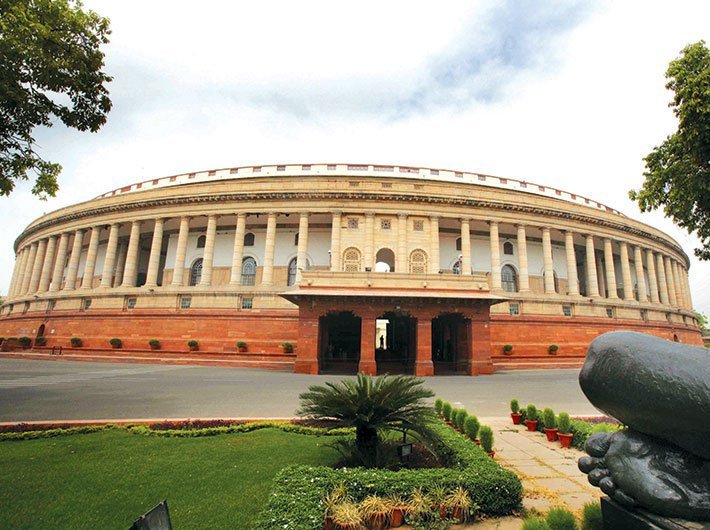At the start of 250th session, chairman Naidu lauds its contribution but adds “all is not well”
The beginning of its historic 250th session gave the upper house of parliament an opportunity to take stock of its past and its future, the challenges ahead and the ways to meet them.
The house on Monday took up a discussion on ‘The Role of Rajya Sabha in Indian Polity and the Way Forward’. Setting the context for the discussion, chairman M Venkaiah Naidu said the upper house has played a significant role in the socio-economic transformation of the country during its journey of 67 years but added, “All is not well.”
Naidu referred to the role of Rajya Sabha in transforming the state of affairs in the country at the stroke of freedom marked by poverty, illiteracy, poor healthcare, low level of industrialization and economic growth, social orthodoxy, poor infrastructure, unemployment etc. to becoming now a leading engine of economic growth and a voice being heard in the complex global order besides substantially improved quality of life of the people.
The chairman stressed the need for collective reflection over the journey of the house so far and a sincere introspection over the missed opportunities on this landmark occasion, failing which he said “there is an inherent risk of making ourselves irrelevant”.
Naidu urged the members to look within to find answer to the question – “Are we contributing to enhancing the standing of this august institution by our words and deeds both within the house and outside?” – in the context of wider public concern about the functioning of the house.
Naidu made 10 suggestions for consideration by the members of the house for making a difference in its functioning:
1. Adequacy of the number of the sittings in the context of the house meeting for about 60-70 days in a year now, keeping in view the nature and volume of legislations and time available for discussing issues of public importance;
2. Adequacy of the present Rules of Business of the house and changes required, if any;
3. Adequacy and effectiveness of various instruments presently available for the members to present their views on legislative proposals and raising issues of public concern;
4. Adequacy and effectiveness of the present procedures currently being followed in the House;
5. Norms to be followed for enabling equitable and wider participation of members in the debates;
6. Ensuring that members with right background and abilities to enrich debates are sent to the house;
7. Ensuring self-discipline on the part of the members to ensure compliance with the Rules of the Business for orderly functioning of the house;
8. Requirement of infrastructure support to the members to enable informed contribution to the debates in the house;
9. Ensuring adequate presence of members in the house all through the proceedings and in the meetings of the department related standing committees and other committees of the house; and
10. Technology adoption for improving the functioning of the members and for more lively conduct of the proceedings of the house.
Stating that both the houses are virtually co-equal except in matters of No Confidence Motions and Money Bills, Naidu stated that Rajya Sabha has a specific role and mandate evolved from the discussions in the Constituent Assembly, the core of which is that members should enrich the proceedings of the house with enlightened discussions and debates by bringing into play their wisdom, knowledge and expertise and present various perspectives on each issue under consideration of the house.
Naidu also called for sending and nominating members of right quality and ability to Rajya Sabha.
The chairman stated that since its first sitting on May 13, 1952, the upper house, during the last 249th sessions held 5,466 sittings and passed 3,817 bills. He complimented all the 2,282 members of Rajya Sabha so far, the presiding officers, panel chairpersons, ministers, leaders of the house and opposition and all others concerned for their participation in and contribution to the 67-year journey of Rajya Sabha.
